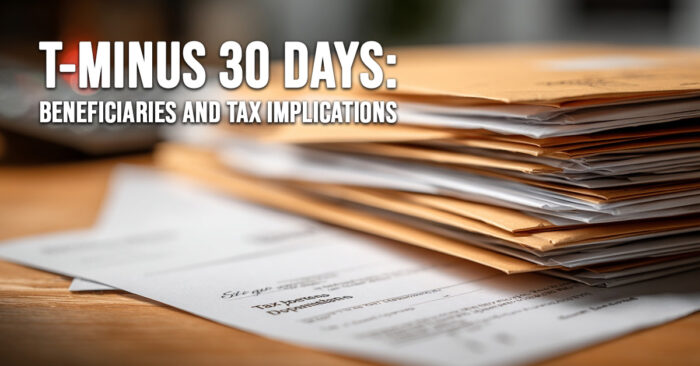The Benefits and Drawbacks of an LLC

The Benefits and Drawbacks of an LLC
A Limited Liability Company (LLC) is a business structure that is particularly useful in the formation of small businesses. It combines some of the benefits and features of a business partnership with those of a corporation, providing business owners additional protection for their personal assets like their home or car.
What are some specific benefits of an LLC, and what are some downsides? Here is a quick summary.
The Benefits
Profits and losses in an LLC pass through as personal income of members of the LLC. This means there are no corporate taxes to be paid. In an LLC, the personal assets and property of the members are isolated from a business bankruptcy or lawsuit. Another benefit of an LLC is that it can have a single member or multiple members and multiple members and payments are unrestricted to the members of an LLC. Among the other benefits of an LLC is that it is easy to form and maintain.
The Drawbacks of an LLC
The cons of an LLC are that there are costs associated with its formation and annual fees to maintain it. While there are tax benefits, there are still tax issues with an LLC, with members receiving K-1 forms detailing profit and losses. You will also have to check with your state to see if it has applicable franchise or excise taxes. Another drawback of an LLC is that it can be more difficult to raise funding for an LLC than a C-Corporation.
If your personal assets are protected with an LLC, does this mean you can operate without business insurance? It is just simply not a good idea to operate any business without business insurance.
While your personal assets may be protected, all of your company assets are still at risk even with an LLC. If there is not a clear delineation between personal and business assets that also, could put personal assets at risk. In addition, if you sign personally for a business loan, that too, is a game-changer. Should your LLC become involved in a liability lawsuit, business insurance would cover the legal costs, settlement costs and/or judgement costs. If you operate an LLC without business insurance, you are liable for potentially expensive legal costs, even if the lawsuit is unsuccessful.
Of course, before forming any company, you’ll want to discuss options with an attorney and tax accountant.
To discuss protecting your business with a business insurance plan, contact one of our independent agents. They work with a variety of insurance companies who may specialize in insuring businesses just like yours. Contact us today and see how affordable protecting your business can be!
Do you have questions about your insurance? Find an insurance agent near you with our Agent Finder
Search All Blogs
Search All Blogs
Read More Blogs
T-Minus 30 Days: The Late January Review of Beneficiaries and Tax Implications
Tax forms are here. Review your life insurance beneficiaries one last time, and understand the tax status of policy payouts vs. accrued interest.
Extreme Cold Alert: Protecting Your Vehicle from Late January Freeze Damage
Frozen engine block? Late January extreme cold risks and how your Comprehensive Auto Insurance handles non-collision, cold-related vehicle damage.
The Final Frost: Securing Your Home from Ice and Tree Damage
Extreme cold risk is highest now. A guide to Home Insurance for tree fall damage, ice structure risks, and securing your claim against catastrophic late-January weather.
Slow Cooker Immunity: Nourishing Your Body with Winter Comfort Foods
Fight the mid-winter slump! Easy slow-cooker recipes packed with immune-boosting spices and ingredients to keep your family healthy in late January.
Accountability in the New Year: Auditing Employee Risk for Workers’ Comp and Liability
Get back to basics! Mid-January is the time for mandatory safety refreshers and HR audits to manage Workers’ Comp and General Liability risk in 2026.
The Mid-January Check-Up: Why Scheduling Your Life Insurance Exam Now Locks in the Best Rate
Don’t delay the exam! Schedule your Life Insurance paramedical exam in mid-January to lock in your best rate and complete your application process quickly.
Used Car, New Coverage: Insuring Your Post-Holiday Vehicle Purchase in January
Just bought a used car? Don’t forget to update the VIN, transfer your coverage, and check if you need higher Medical Payments limits.
The Mid-Winter Meltdown: Protecting Your Home from Aging Furnace and Water Heater Failure
Mid-January system failure is costly. Learn why standard home insurance doesn’t cover your broken furnace and why you need an Equipment Breakdown endorsement now.
The Great Indoor Escape: Launching Your Mid-January Reading Challenge
Swap the screen for a spine! How to launch a simple, rewarding mid-January reading challenge to improve focus and beat the winter blues.
Cyber Traps of Tax Season: Securing Your Business Data with Cyber Insurance
Tax season is phishing season. Protect your sensitive financial data and employee W-2s with robust Cyber Insurance coverage against targeted tax fraud.









